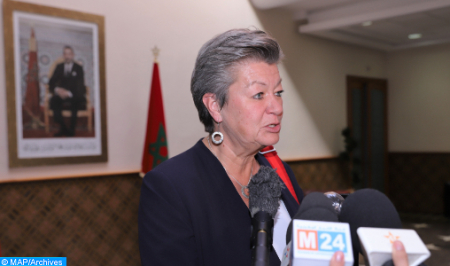“Morocco is a very important partner for us in managing migration together,” stressed Johansson at a press briefing dedicated to the presentation of the EU’s new action plan for managing migration routes in the Western Mediterranean and Atlantic.
In this respect, she expressed her thanks to the Moroccan authorities for their “very constructive commitment” to migration and the fight against human trafficking, stressing that the EU and Morocco “maintain a solid and reliable partnership on migration”.
“We want to support Morocco’s efforts to combat human trafficking,” said Johansson, expressing the EU’s readiness to back these efforts through its agencies and resources.
The EU’s new action plan for managing migratory routes in the Western Mediterranean and Atlantic includes efforts to prevent irregular migration by combating migrant smuggling and human trafficking, particularly by implementing the operational partnership with Morocco to combat migrant smuggling.
The Commission presented this action plan ahead of the next Justice and Home Affairs Council meeting on June 8-9 and the European Council on June 29-30.
Last July, Rabat and Brussels, aware of the new challenges of the international context and the dangers posed by networks of human smugglers and traffickers, decided to reinvigorate their migration partnership based on shared responsibility, by laying the foundations for a renewed partnership.
The EU, which appreciates the colossal effort made by Morocco, a “strategic and committed partner” of the EU, had pledged to work with the Kingdom to promote an operational partnership in the fight against human trafficking, which could include support for border management, strengthening police cooperation, including joint investigations, raising awareness of the dangers of illegal migration, and stepping up cooperation with the European Union’s home affairs agencies.
The two partners rely in particular on the National Immigration and Asylum Strategy (SNIA), which today represents one of the most advanced models of migration management, both in legislative and institutional terms.










